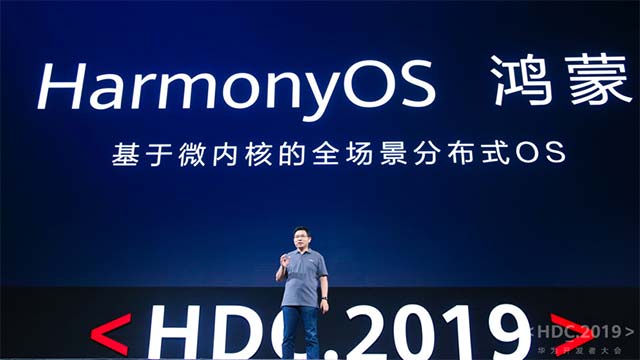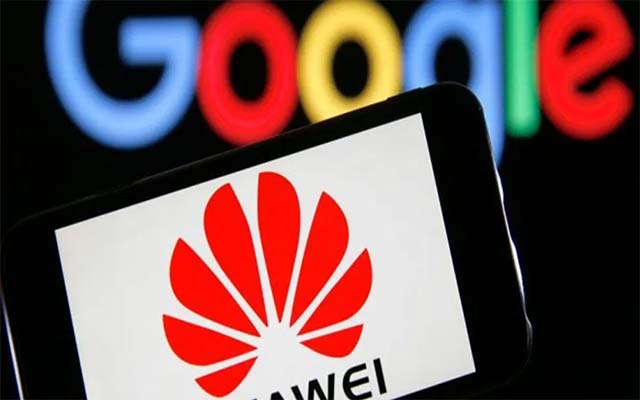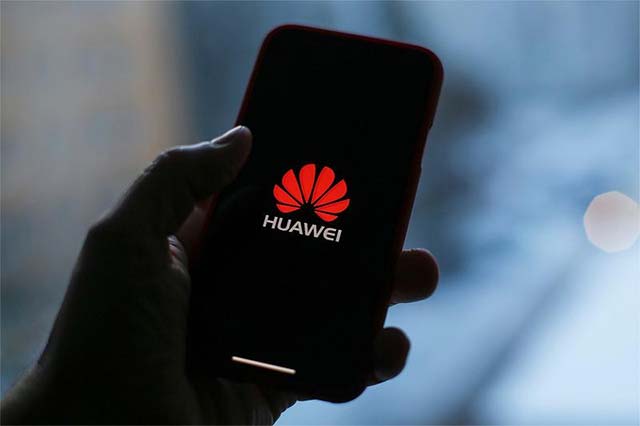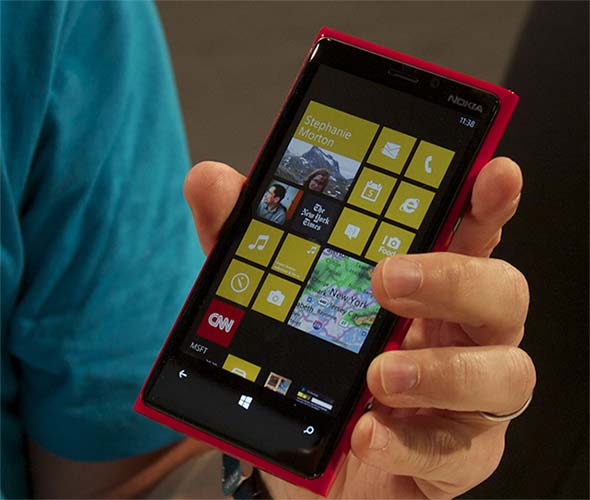Compare Harmony OS and Android, what are they similar and different?
Recently in the framework of Huawei Development Conference 2019, Richard Yu (Yu Chengdong), CEO of Huawei Consumer Business Group, has officially introduced the operating system developed by the company with the official name of Harmony OS.
On the side of Huawei, Harmony OS was built on the microkernel architecture, allowing this operating system to operate on many different hardware devices and share data through a distributed architecture to improve good effect. Thus, Harmony OS will operate on nearly all smart devices in its ecosystem including smartphones, TVs, tablets, smartwatch, smart cars .
- Not phones, new TVs are the first device to run HarmonyOS, Huawei's ready-to-replace Android operating system
 Harmony OS will operate on nearly all smart devices in Huawei's ecosystem
Harmony OS will operate on nearly all smart devices in Huawei's ecosystem
These features make many people immediately think of another operating system that is being used most commonly in the world: Android. Huawei even claims that its new operating system will be a direct competitor and can make Android 'stand out'. Many speculations are being made about whether Harmony is a replacement for Android on smartphones as well as Huawei and Honor's digital products. So how is Harmony OS really operating and what is different from Android? We will find out later.
Harmony OS and Android
- Harmony OS is not developed based on Linux kernel like Android
- Harmony OS is not necessarily a rival of Android
- Harmony OS is faster than Android (in theory)
- There will be no root access on Harmony OS
- Application ecosystem fight: Android is still the winner
Harmony OS is not developed based on Linux kernel like Android
One of the most obvious and fundamental differences between Harmony and Android is that Huawei's operating system does not include Linux kernel in the core platform. Instead of relying on Linux kernels like Android, Huawei has chosen a tough but (possibly) more sustainable path, developing a completely new kernel for its future operating system.
In the Harmony OS launch, Richard Yu, director of Huawei's consumer-business division, compared its operating system with Fuchsia - another platform in Google's development phase, based on ants. zircon.
 Harmony OS is not developed based on Linux kernel like Android
Harmony OS is not developed based on Linux kernel like Android
A typical microkernel is much smaller in size than a monolithic kernel like Linux, because it only includes the minimum amount of bare code needed to run the operating system. Microcomputers used by Huawei to develop Harmony OS only own about 1/1000 of the number of code currently available in the Linux kernel. In fact, this micro-core only contains thread scheduling and IPC. All other services commonly found in a block-like resource such as Linux include file systems, device drivers (device drivers) or network drivers (network drivers), etc. will all run in the human space. use.
In this case, inter-process communication (IPC) will become an especially important factor in determining the overall performance of the operating system. Huawei claims its microprocessors can provide IPC up to 5 times faster than Fuchsia and up to 3 times faster than the QNX micro.
- Detecting vulnerabilities in Snapdragon chips allows hackers to penetrate nearly every Android smartphone via wifi
Harmony OS is not necessarily a rival of Android
Although Huawei representatives hinted at the fact that Harmony OS could absolutely "usurp" Android, in fact this is very unlikely.
First, it is necessary to mention the true nature behind the birth of Harmony OS. To be fair, Huawei still wants to continue using Android on its products, but the trade war between the US and China has made them a reluctant victim.
 Harmony OS is Huawei's strategic card to take the initiative
Harmony OS is Huawei's strategic card to take the initiative
Of course, building a platform of your own operating system is a complex, costly, and risky task, but the fact that Google threatened to stop cooperating with Huawei in May made the manufacturer Chinese smartphones have no alternative but to actively take on their own contingency plans.
With the emergence of a homegrown platform like Harmony OS, Huawei is able to switch its smartphone segment to this operating system platform after only a day or two in the case of a company. again being 'chased' out of the US (and banned from the Android ecosystem).
- What is Windows Core? Is it the future of Windows operating system?
Initially, Huawei only intended to focus on putting its operating system on smart screen products, smart speakers, car entertainment systems, etc. In the whitelist the newly released technology predicts. Recently, Huawei hopes that it will own more technologies based on AI, IoT and 5G by 2025, and that a 'home grown' operating system like Harmony will be a necessary condition to help the company show up. Realize that desire. Mastering the entire technology is always better!
Thus, it can be seen that the launch of the Harmony OS is not only a strategic move for Huawei to cope with difficulties related to the hostile policy that President Donald Trump's government is targeting them, but in fact It is a "B plan" that this technology company has long embraced.
In the face of the ever-increasing tensions between the United States and China, observers speculated that Huawei could be 'traveling' with Harmony OS right on the upcoming flagship Mate 30 series. This point is more and more believable that until now, this device has not yet received a Google Play certificate, while this is a must for manufacturers to pre-download the Android operating system and Google services on your upcoming product.
- Zorin OS 15, a user-friendly version of Linux operating system, for those who are tired of Windows or Mac
Harmony OS is faster than Android (in theory)
Huawei is using the 'distributed operating system' as a new strategy to maintain and expand its latest product sales in the smartphone industry. That's why Harmony OS uses distributed task scheduling and distributed data management to improve operating system performance.
Huawei experts argue that their "dispersed" Harmony OS version can outperform Android in terms of speed, because Google's operating system uses a lot of backup code, a mechanism. set up an outdated schedule and hide fragmentation problems.
 Harmony OS can reduce the response delay by 25.7% by determining the factors that make slow and optimal to achieve accurate resource usage
Harmony OS can reduce the response delay by 25.7% by determining the factors that make slow and optimal to achieve accurate resource usage
Meanwhile, Huawei's microprocessor has deployed a new scheduling mechanism called Deterministic Latency Engine, using real-time load analysis, matching application characteristics and forecasting to allocate system resources in a dark way. better).
The company stated that this mechanism has helped to optimize impressive feedback latency, with an improvement of up to 25.7% in response latency, and 55.6% in lag variation. Huawei says the popular 'scratching' style scheduling mechanism on Linux handles all resources in the same way, thus reducing performance.
Huawei is confident that Harmony will beat Android in terms of processing speed, but the end result to users is still very difficult to predict and will need to be demonstrated specifically.
- Google launched the website for Fuchsia, Android's successor operating system
There will be no root access on Harmony OS
The term 'root' in technology has a lot of meanings, but in this case it can be understood that the process of unlocking Android devices to allow more access to core software may have been taken by the device manufacturer. block out. So rooting the device is absolutely optional, you should only root the device if you want to perform tasks that require administrative rights at the user level.
It is not exaggerating to say that root is one of the 'features' that make Android unique, making this operating system a great 'scratch bar' for technology lovers, even people Buy Android phone only to root.
 Harmony OS will not allow root access in the terminal devices to ensure comprehensive security
Harmony OS will not allow root access in the terminal devices to ensure comprehensive security
However, this interesting feature will almost never appear on Harmony OS when at the recent Huawei Development Conference, Huawei announced that the operating system will not support root access on devices, the reason is supposedly to improve the overall security of the micro as well as the device.
In addition, Huawei also said it has implemented 'advanced security authentication methods' as a safety shield for its employees. It is known that these are mathematical-based authentication methods, which are commonly used in areas of particular emphasis on security such as aerospace and chipset. This provides a huge advantage over the functional verification and attack simulation, which can only solve a limited number of security situations.
- Everything you need to know about macOS Catalina
Application ecosystem fight: Android is still the winner
The final factor, but may affect the face of the confrontation between Harmony and Android: The variety of application ecosystems.
This is also the biggest disadvantage of Harmony compared to Android, or so is any other 'late birth' operating system. The world of mobile operating systems has long been a dual-race race between Android and iOS, most of which are currently written only for these two platforms, while the diversity of the main application ecosystem is one of the vital elements of any operating system. This is most clearly demonstrated through the failure of Windows Phone. Microsoft's platform is relatively intuitive, fast, well-compatible, but app store ownership is too modest, in other words, Microsoft has failed to call mobile application developers to write applications for Windows. Phone. When an operating system that owns a compatible app store is too modest, it will not be able to keep users long-term and failure is inevitable.
- Former Nokia engineer explained the cause of Windows Phone's failure
 The humility of the application ecosystem is a part of the failure of Windows Phone
The humility of the application ecosystem is a part of the failure of Windows Phone
The upcoming difficulty of Harmony OS if you want to get into the smartphone market is not outside of that fact, and of course, Huawei's 'full-hearted' brains understand this better than anyone. Chinese smartphone maker has been trying to 'lobby' in the past few months. They try to entice developers to switch their apps to the Play Store app store called AppGallery.
HarmonyOS does not currently support Android applications, but Huawei said that this capability will most likely appear in the near future in order to create maximum conditions for developers. The company has released all the necessary SDKs and many other tools to help developers easily recompile their applications for HarmonyOS. However, this will remain a long-term war with Huawei, which requires clever planning, strong financial resources, and ultimately time to prove its effectiveness.
These are the basic differences between Harmony OS and Android OS, as well as the difficulties faced by Huawei to realize the ambition to become a force in the field of mobile operating systems. What do you think about Huawei's new operating system? Leave comments in the comment section below!
You should read it
- ★ Not HongMeng OS, Ark OS is Huawei's Android replacement operating system
- ★ Highway screenshots are said to be the OS OS OS of Huawei
- ★ Android 5.1 will be released in February, the silent mode returns
- ★ The whole technology world guessed the wrong name of Android L?
- ★ A picture worth pondering about the Android world today